Ageism Can Change

by Michael Feeley
In 1969, gerontologist Robert Butler gave a name to something we see and may have unfortunately experienced: ageism. The systemic discrimination against aging people. Something we must actively conspire against and end.
It’s not abstract—it’s the 35-year-old passed over for being “too young to lead” and the 55-year-old rejected for being “overqualified.”
Throughout my career, I experienced age discrimination in my 30s across various fields. As a career and life coach working with people 50+, I hear these stories constantly: talented professionals convinced they’re “too old,” limiting themselves before anyone else gets the chance.
Here’s what I’ve learned: the problem isn’t your age, but rather how we’ve been conditioned to think about age.
What if instead of seeing age as a limitation, we recognized it as empowerment?
What if the question shifted from “Am I too old?” to “How does my experience make me invaluable?”
Aging isn’t about decline—it’s about evolution.
Career reinvention becomes possible with clear priorities, allowing you to pursue work that aligns with your values and hard-earned skills.
Mentorship and intergenerational collaboration amplify your impact.
Experience clarifies your legacy and how your work serves something larger than yourself.
Lead with your wins—your track record isn’t ancient history, it’s evidence of sustained performance and adaptability.
Embrace your evolution. You’re not the same person you were at 25 or 45. You’re better in ways that matter: wiser, more focused, more authentic.
Own your expertise. You’ve earned the right to be confident in your knowledge. Don’t diminish it—leverage it.
Change happens when we stop accepting limitations and start challenging assumptions—both others’ and our own.
Question the narrative when someone suggests you’re “too experienced” or “overqualified”—often, it’s code for age discrimination.
Highlight ongoing growth, showing that experience doesn’t mean stagnation. Share recent learning, new skills, and current achievements.
Build relationships with colleagues of all ages and let your work speak louder than your birth year.
Breaking out of age-based limitations isn’t just personal—it’s an essential revolution. Every time someone at 50, 60, 70, or beyond refuses to be sidelined, they create space for others to do the same.
Your age isn’t your expiration date. It’s your accumulation of wisdom, experience, and capability that younger people are still building, and older stereotypes can’t contain.
The question isn’t whether society will change its view of aging—it’s whether you’ll change yours first.
Ageism is real. It can change, and it starts with recognizing that your age doesn’t diminish your value—it multiplies it.
Thanks – Michael (he, him)
Please share this Daily with your tribes.
This matters too – Improving with Age.
#2002





